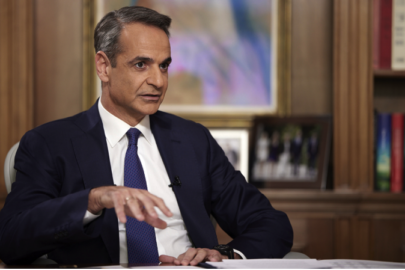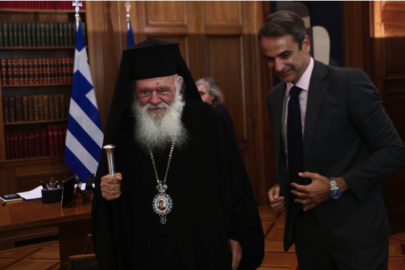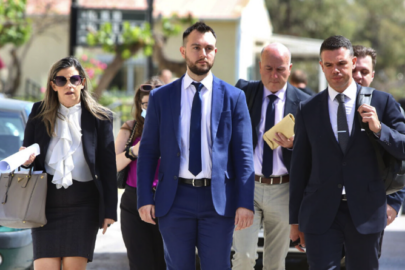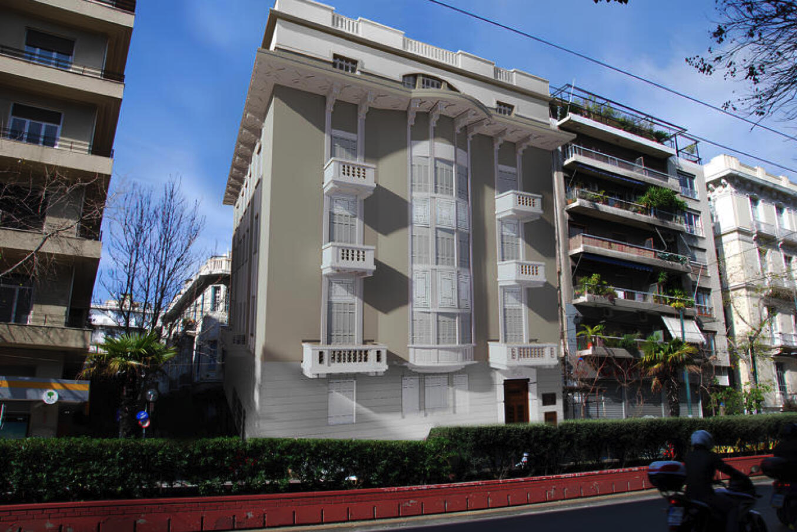It’s a plot worthy of “Col. Stierlitz”, the fictional Soviet “James Bond” imbedded deep within Nazi Germany’s leadership during WWII, yet according to the Financial Times, ruling SYRIZA party’s far-left wing contemplated a “covert plan” to flush Greece out of the common currency and back to the feeble drachma of old.
The article, bylined by veteran FT correspondent in Athens Kerin Hope, along with Tony Barber, said the alleged plan envisioned the arrest of Bank of Greece gov. Yannis Stournaras, a raid on the treasury to take whatever euros were left in the vaults and to appeal to … Russia’s Putin for financial assistance.
The article focuses on a meeting of far-left SYRIZA cadres, including most of the Left Platform grouping and its unofficial leader, ex-minister Panagiotis Lafazanis, as the leftist Greek government under Alexis Tsipras agreed to sign an agreement with creditors leading to a third bailout – which essentially avoided the country’s’ disorderly default.
Here’s the article:
Arresting the central bank’s governor. Emptying its vaults. Appealing to Moscow for help.
These were the elements of a covert plan to return Greece to the drachma hatched by members of the Left Platform faction of Greece’s governing Syriza party.
They were discussed at a July 14 meeting at the Oscar Hotel in a shabby downtown district of Athens following an EU summit that saw Greece cave to its creditors, leaving many in the party feeling despondent and desperate.
The plans have come to light through interviews with participants in the meeting as well as senior Greek officials and sympathetic journalists who were waiting outside the gathering and briefed on the talks.
They offer a sense of the chaos and behind-the-scenes manoeuvring as Greece nearly crashed out of the single currency before prime minister Alexis Tsipras agreed to the outlines of an €86bn bailout at the EU summit. With that deal still to be finalised, they are also a reminder of the determination of a sizeable swath of Mr Tsipras’ leftwing party to return the country to the drachma and increase state control of the economy.
Chief among them is Panayotis Lafazanis, the former energy and environment minister and leader of Syriza’s Left Platform, which unites a diverse group of far left activists — from supporters of the late Venezuelan president Hugo Chávez to old-fashioned communists. He was eventually sacked in a cabinet reshuffle after voting against reforms tied to the bailout.
“Obviously it was a moment of high tension,” a Syriza activist said, describing the atmosphere as the meeting opened. “But you were also aware of a real revolutionary spirit in the room.”
Yet even hardline communists were taken aback when Mr Lafazanis proposed that the Syriza government should seize control of the Nomismatokopeion, the Greek mint, where the bulk of the country’s cash reserves are kept.
“Our plan is that we go for a national currency. This is what we should have done already. But we can do it now,” he said, according to people present at the meeting.
Mr Lafazanis said the reserves, which he claimed amounted to €22bn, would pay for pensions and public sector wages and also keep Greece supplied with food and fuel while preparations were made for launching a new drachma.
Meanwhile, the central bank would immediately lose its independence and be placed under government control. Its governor, Yannis Stournaras, would be arrested if, as expected, he opposed the move.
“For people planning a conspiracy to undermine the Greek state, they were pretty open about it,” said one reporter who staked out the event.
The plan demonstrates the apparently ruthless determination of Syriza’s far leftists to pursue their political aims — but also their lack of awareness of the workings of the eurozone financial system.
For one thing, the vaults at the Nomismatokopeion currently hold only about €10bn of cash — enough to keep the country afloat for only a few weeks but not the estimated six to eight months required to prepare, test and launch a new currency.
The Syriza government would have quickly found the country’s stash of banknotes unusable. Nor would they be able to print more €10 and €20 banknotes: From the moment the government took over the mint, the European Central Bank would declare Greek euros as counterfeit, “putting anyone who tried to buy something with them at risk of being arrested for forgery,” said a senior central bank official.
“The consequences would be disastrous. Greece would be isolated from the international financial system with its banks unable to function and its euros worthless,” the official added.
As the details of the Left Platform meeting have leaked out, some political opponents are demanding an accounting.
Athens has caved in to an ultimatum from its creditors and agreed to rush through long-resisted economic reforms in a bid to stay in the eurozone
“Members of this government planned a trip to hell for Greeks,” said Stavros Theodorakis, leader of the pro-EU To Potami party. “They planned to raid the vaults of the people and invade the mint as if it were a Playmobil game. Alexis Tsipras must tell us the truth about what happened.”
Mr Lafazanis did not respond to repeated requests for comment. A spokesman did not deny the plans but called Mr Theodorakis’ reaction “garbage” and dismissed it as typical of the country’s political class.
Mr Lafazanis was not alone in suggesting unorthodox ways in which Greece might adopt a new drachma: Just before Mr Tsipras signed up to the bailout, his former finance minister, Yanis Varoufakis, publicly proposed issuing IOUs to cover all payments until a new currency could be formally issued. He also called for the government to take over control of the central bank.
Even before the Oscar Hotel meeting, Mr Lafazanis, a former Greek Communist Party official, was pursuing desperate schemes to address the government’s financial woes.
Given the communist past of Mr Tsipras and other leading government figures, Athens believed it would be a simple matter to win $5bn to $10bn in financial backing from Vladimir Putin, the Russian president.
Mr Lafazanis visited Moscow three times as Mr Tsipras’s envoy after Syriza came to power in January. In return for signing up to a new gas pipeline project, he hoped for at least €5bn in prepayments of gas transit fees, according to people briefed on the initiative. But the Russians rejected the deal the week before the EU summit.
“It was all a fantasy,” said a senior Greek banker. “The Left Platform’s dreams of free gas and a Russian-backed drachma have crumbled away.”

































